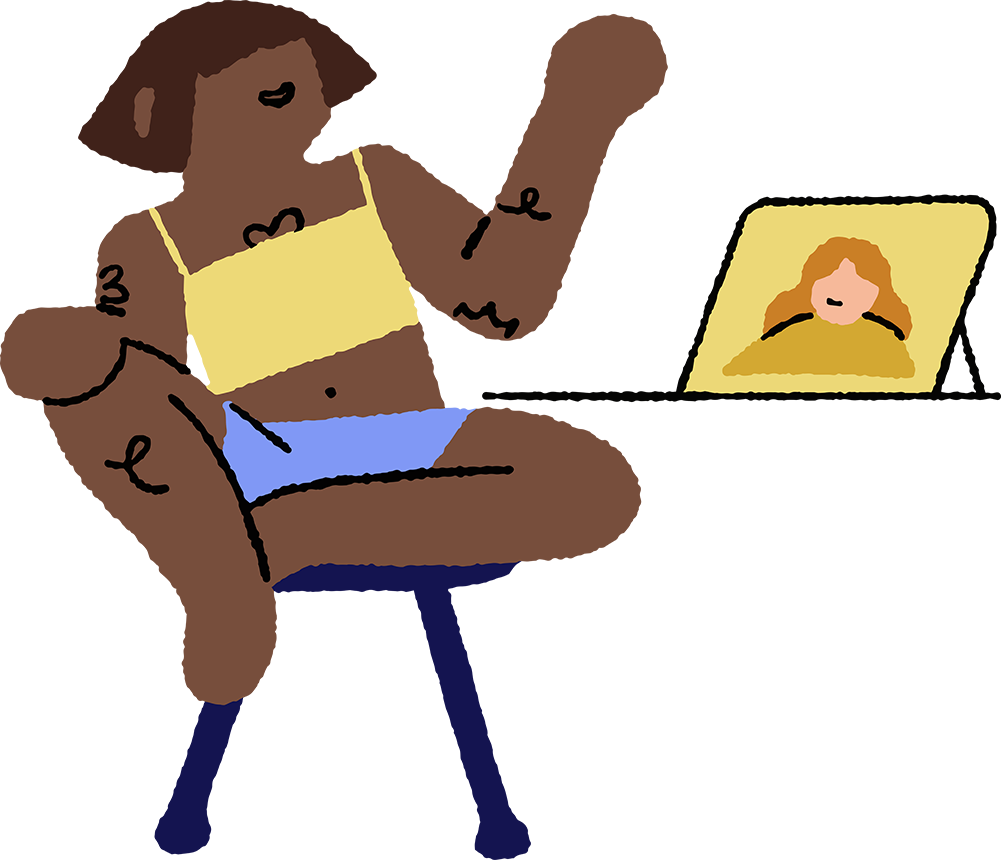
Many people struggling with addiction or substance use disorder (SUD) also have co-occurring mental health disorders. It’s common for people struggling with addiction to also face conditions like anxiety, depression, PTSD, or ADHD. About 8.1 million adults in the U.S. deal with this challenge.
Co-occurring disorders can make treatment more complex, as both the mental health issue(s) and the substance use disorder need to be addressed for effective recovery. If only one disorder is accounted for, patients will face higher risks of relapse or worsening symptoms.
Co-occurring disorders happen when someone has both a substance use disorder (SUD), like alcohol or opioid addiction, and a mental health disorder at the same time. These two issues can affect each other in complicated ways, meaning that one can make the symptoms of the other worse or even hide them.
Several risk factors contribute to the development of co-occurring disorders, including:
While any combination of mental health and substance use disorders can occur at the same time, certain pairings are more common than others. Some of the most common co-occurring disorders include:
Anxiety disorders include a range of conditions characterized by excessive fear, worry, or panic that are hard to control and can interfere with daily life. Individuals with anxiety disorders are at a higher risk for developing SUDs, often using alcohol or drugs as a form of self-medication to alleviate their anxiety symptoms.
Mood disorders refer to conditions like depression, mania and bipolar disorder, which are characterized by extreme emotional highs or lows. Many individuals with mood disorders may turn to substances to get relief from their symptoms. For instance, someone experiencing depression might use alcohol to temporarily escape their feelings. However, this often leads to increased substance use and worsening of mood symptoms over time.
Personality disorders are characterized by enduring patterns of behavior, cognition, and inner experience that deviate from what society expects. Borderline personality disorder (BPD) and antisocial personality disorder (ASPD) are particularly associated with higher rates of substance use. Many personality disorders are characterized by impulsive behaviors and poor decision-making, which can increase the likelihood of engaging in substance use.
PTSD develops after exposure to a traumatic event, such as combat, sexual assault, natural disasters, or serious accidents. People with PTSD may have flashbacks, nightmares, or severe anxiety related to the trauma, making it hard to live a normal life. They might use substances as a coping mechanism to manage their distressing symptoms, which can lead to addiction.
ADHD affects a person’s ability to focus, stay organized, or control impulses. Individuals with ADHD are at a higher risk for developing SUD due to impulsivity and risk-taking behaviors associated with the disorder. They may turn to substances as a way to self-medicate. For example, stimulants like cocaine can paradoxically increase attention span in some individuals with ADHD, while marijuana may temporarily alleviate hyperactivity or impulsivity.
The development of an addiction with co-occurring disorders often follows a pattern of exposure to negative experiences during childhood, adolescence and early adulthood. This is the time of your life when your brain – the control center of your body – develops.
One critical component of the brain is the arousal system. This is the part that regulates alertness, attention, and responsiveness to stimuli. Exposure to stress, neglect and conflict during this period of your life can have a lasting impact on how your brain functions, and disrupt your arousal system. This makes it harder for you to regulate your mood and control behavior, which makes it more likely to develop mental health disorders and to struggle with substance use.
The following sequence explains very broadly how addiction and co-occurring disorders emerge, but not all steps apply to everyone:
Arousal System Disturbance: Early substance use, together with emerging mental health disorders disturb your arousal system (the control center of your brain). This makes it harder to deal with co-occurring disorders.
Genetic factors: By themselves, these do not cause addiction or mental health disorders, but make people vulnerable to them.
Fetal exposure to substances and maternal stress: This affects normal brain development.
Exposure to stress, neglect and conflict during early childhood: Exposure of this kind can further heighten vulnerability to addiction and mental health disorders
Stress During Adolescence: This life period is a highly stressful time for most people, and a stage of major brain development. It’s also the moment when many people turn to substance use.
Emergence: At this point, patterns in behavior and emotions will become recognizable disorders.
Co-occurring disorders can be difficult to diagnose because of overlapping symptoms. A thorough assessment typically involves a multi-faceted evaluation that includes clinical interviews, standardized screening tools, and collateral information from family or previous treatment providers.
Ideally, diagnoses should be made when the individual is not under the influence of substances. This helps to differentiate between symptoms caused by substance use or withdrawal and those stemming from underlying mental health issues.
Diagnoses are typically made according to defined criteria in the Diagnostic and Statistical Manual of Mental Disorders (DSM-5), which provides specific guidelines for diagnosing both addiction and various mental health disorders.
Effective treatment for co-occurring disorders typically involves a combination of medication-assisted treatment (MAT), psychotherapy, and support services tailored to the individual’s needs. A team of professionals, including mental health counselors, addiction specialists, psychiatrists, and other healthcare providers, work collaboratively to provide holistic care.
These integrated care models that address both conditions simultaneously have been shown to improve outcomes for individuals facing these challenges.
Medication-Assisted Treatment (MAT) combines the use of medications with counseling and behavioral therapies to address both the physical and psychological aspects of addiction and mental health issues. With MAT, FDA-approved medications are prescribed to help individuals manage withdrawal symptoms, reduce cravings, and stabilize mood. Individuals are then more likely to actively participate in counseling and behavioral therapies that address their mental health conditions as well as an addiction.
Various forms of psychotherapy, such as cognitive-behavioral therapy (CBT), dialectical behavior therapy (DBT), and motivational interviewing, are employed to address co-occurring disorders. Therapy and counseling help individuals develop effective coping strategies to manage stress, triggers, and cravings associated with both their mental health and substance use issues. This is particularly important for those who may have previously used substances as a way to cope with emotional pain or distress.
Working with a peer recovery specialist one-on-one provides a safe space to discuss struggles, share experiences and facilitate access to resources. A peer recovery specialist is an individual who has personal experience with recovery from substance use or mental health disorders and has received specialized training to support others facing similar challenges. Their practical insights empower individuals with SUDs and mental health challenges to pursue their recovery goals more effectively.

One of the main barriers to treatment for co-occurring conditions and addiction is the in-person nature of many programs. Having to drive to a clinic or center to engage in therapy or receive a prescription is disruptive to many people’s routines and work schedules.
Eleanor Health is a flexible treatment program for people struggling with mild to moderate substance use coupled with co-occurring conditions. You can start your recovery journey with us or become a member as the next step after a detoxification treatment or residential program. Our members receive comprehensive treatment from the comfort of their own homes, with in-person appointments also available in select locations.
Call today to speak to one of our recovery specialists about getting started. We are here to listen, support you, and meet you where you are on your journey – without judgment.
The relationship between substance abuse and mental health disorders is complex. Not only do they interact with each other, they also affect the physiology (the chemistry and anatomy) of your brain. Substance use causes changes to your brain chemistry and anatomy. Mental health disorders, in turn, result from and contribute to changes in the brain. When they occur together, these disorders often create a cycle where one feeds into the other and vice versa.
Yes, substance use disorder is considered a mental health disorder under the Diagnostic and Statistical Manual of Mental Disorders (DSM-5). The DSM-5 outlines eleven criteria for diagnosing SUD, and the severity of the disorder is determined based on the number of criteria met within a 12-month period.
The eleven criteria are as follows:
These terms are often used interchangeably, but mean slightly different things. As our understanding of co-occurring disorders has grown, so has our vocabulary changed to better describe these conditions. Dual diagnosis is an older term that was coined at a time where treatment was centered on SUD with co-occurring anxiety and depression. The term “co-occurring disorders” was later adopted to reflect the wider spectrum of co-occurring disorders that can occur with SUD.
Comorbidity is a broader term that refers to any combination of disorders, including physical and mental health issues, that exist together. For example, a person with depression who also has diabetes would be considered to have comorbid conditions. Comorbidities may or may not interact with one another, while co-occurring disorders are often very intimately intertwined.
Certain comorbidities can increase the risk of complications during rehabilitation, so they should be discussed with your healthcare provider before you begin treatment to adjust your treatment plan accordingly.